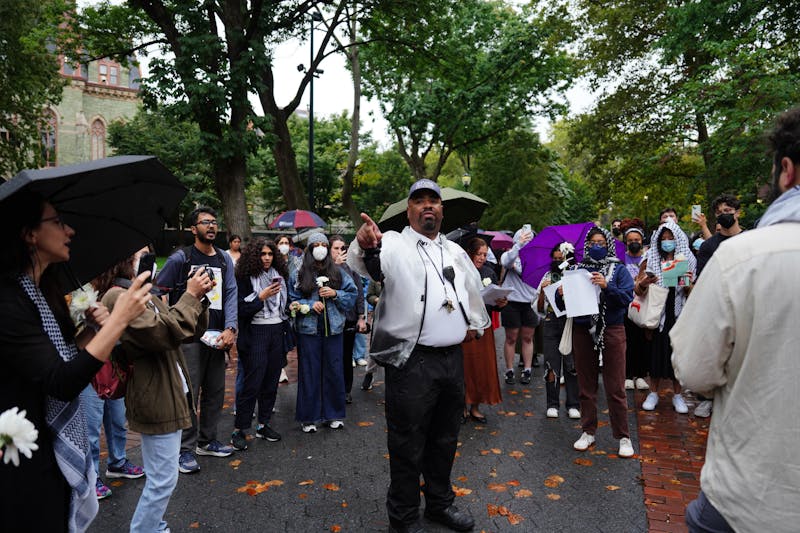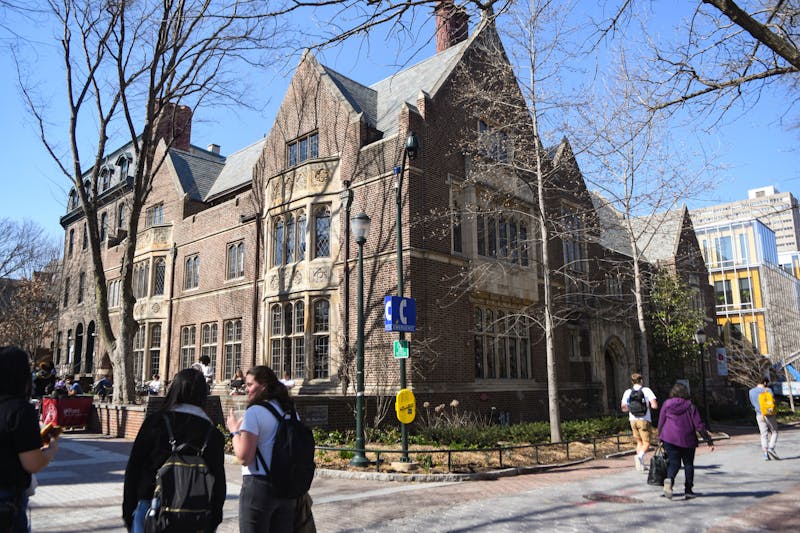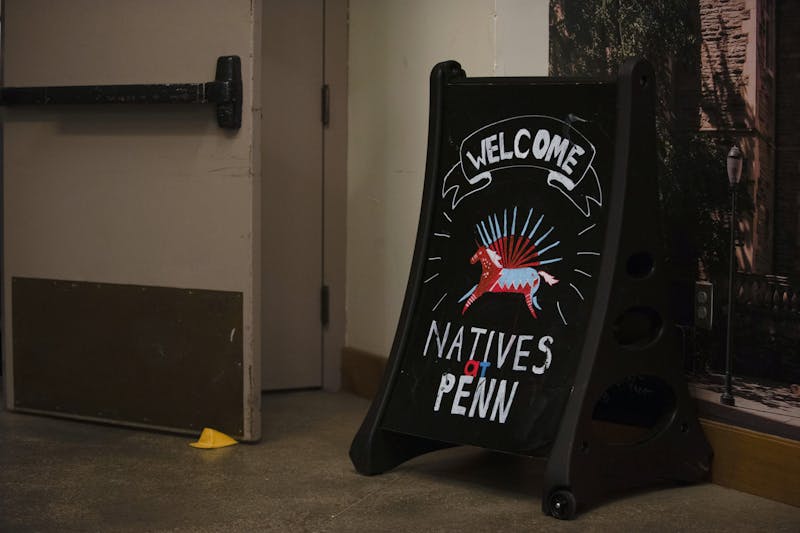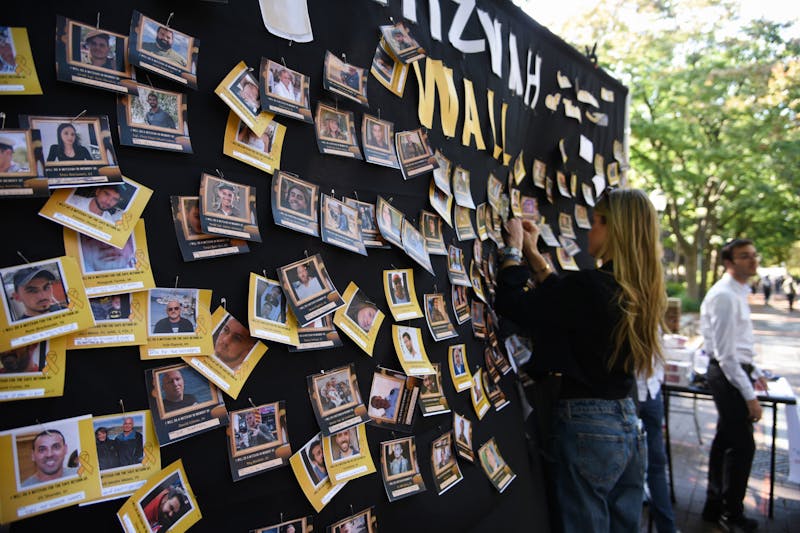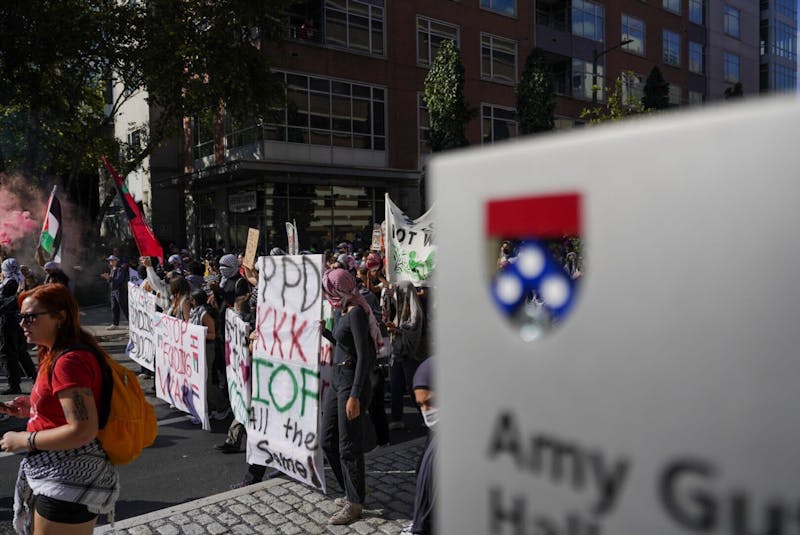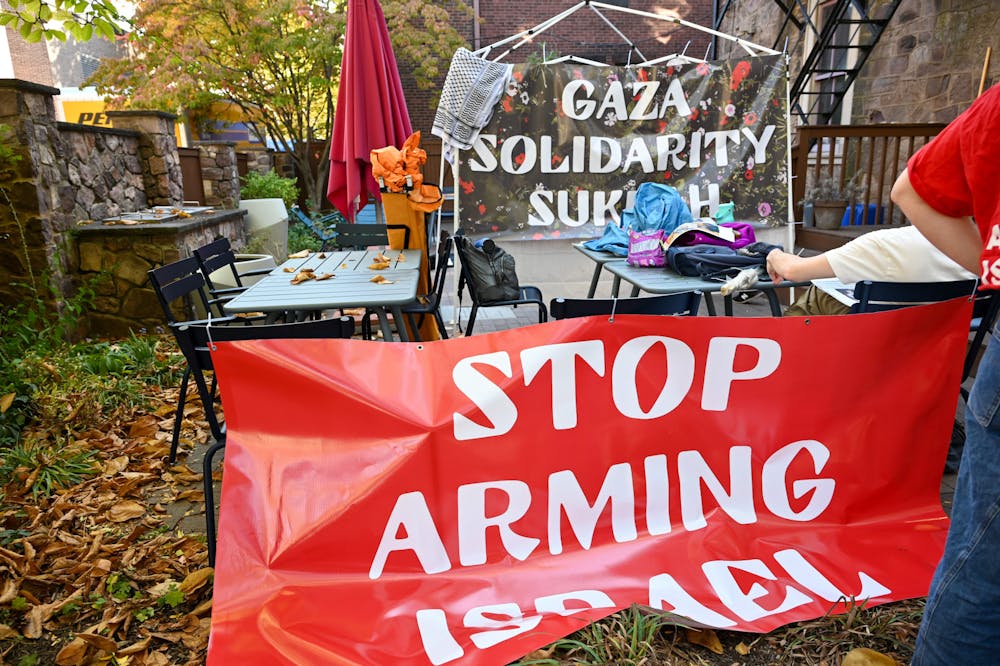
JVP at Penn setting up the Gaza Solidarity Sukkah at the Penn Women's Center on Oct. 22.
Credit: Uma MukhopadhyayPenn’s chapter of Jewish Voice for Peace and Penn Chavurah hosted a "Gaza Solidarity Sukkot" on Oct. 22.
Students gathered in the backyard of the Penn Women’s Center on Tuesday from 10 a.m. to 3 p.m. to commemorate the lives lost in Gaza. The event took place during the weeklong Jewish holiday of Sukkot, which celebrates the fall harvest. During the holiday, practicing Jews live and eat meals in a sukkah — a booth-like dwelling with a roof made from plant material.
The Penn chapter of JVP was founded earlier this month by graduate student Maddy Kessler and a College sophomore who requested anonymity due to fear of personal harassment.
Kessler said that the goal of the sukkah was to “create a space on campus anyone can join and be in community for Palestine.”
“We want everyone welcome and for Jewish students to know that there's alternatives to Zionism and that we can have a viable alternative community that exists beyond Zionism,” Kessler said.
The event began with participants building the sukkah and decorating it with a poster reading “Gaza Solidarity Sukkah.” Outside of the sukkah, they placed a poster that said “Stop Arming Israel.” Other decorations included paper links, lights, and the Palestinian flag. Posters with photos and descriptions of "the victims of [the] genocide," as described by the sophomore founder, lined the frame of the sukkah.
A College sophomore, who requested anonymity and attended the "Gaza Solidarity Sukkot," said that Sukkot has “always been about community.”
“Community lately has been really difficult,” they said. “I don't feel safe or in community with a lot of people in a lot of other Jewish organizations on campus, and I think it's really meaningful to be able to have a place where we can go, where we can celebrate the values of Sukkot, the community and everything, even more so in this time where it's amplified how much we need to be able to be a community with each other.”
About 18 JVP chapters across the United States have set up sukkahs at college and university campuses — an action that has been met with mixed responses from college administrators. Administrators at Northwestern University and the University of California at Berkeley ordered police officers to tear down Gaza Solidarity sukkahs in recent days.
At Brown University, students received a permit allowing them to set up their sukkah on the green, but later slept in the structure as a form of protest against “the administration’s threats.” The university said that the students’ requests had not indicated any plans for sleeping in the structure and that sleeping in the sukkah was “prohibited per long-standing University policy.”
Other Jewish organizations at Penn have also set up sukkahs to celebrate the holiday. Penn Chabad's sukkah has been set up on Locust Walk since Oct. 17 and will remain through Wednesday, and Penn Hillel's sukkah was put up on Oct. 14 and will remain through Oct. 26. Both sukkahs are intended to honor the holiday of Sukkot.
At noon on Tuesday, participants ate lunch catered by Al-Sham — a Palestinian-owned restaurant in West Philadelphia — and communed together to study and read poems about the exile of Palestinians in the sukkah. Attendance at the event peaked around this time, with around 25 community members participating.
"I think despite how the subject matter is dark and hard for all of us, I think it's important that we have spaces that we can come together, and think about this stuff in community," the sophomore founder told The Daily Pennsylvanian.
A representative from JVP Philly also visited the sukkah to lead an educational session about Sukkot before encouraging participants to engage in dialogue about their own "Gaza Solidarity Sukkot." Around 2 p.m., participants sang Hebrew and Yiddish songs together before taking the sukkah down and vacating the space at 3 p.m. as scheduled.
"It's rare that organizers are able to meet with a relative sense of security and [the] feeling that they can relax, [and] that's what this sukkah's meant to do," the sophomore founder said.
"We were able to do Sukkot our style, and I think we pulled it off," they added.
The Daily Pennsylvanian is an independent, student-run newspaper. Please consider making a donation to support the coverage that shapes the University. Your generosity ensures a future of strong journalism at Penn.
Donate




